After suicide attempt, dad finds new meaning as bone marrow donor to son with cancer
This story discusses suicide. If you or someone you know is at risk of suicide please call the U.S. National Suicide Prevention Lifeline at 800-273-8255, text HOME to 741741 or go to SpeakingOfSuicide.com/resources for additional resources.
Last summer, Geovani Gálvez was in the middle of a difficult divorce, and his work as a financial counselor at an emergency department had become more stressful with COVID-19 surges and more and more patients needing financial assistance.
“I really hit a low from all that, and that’s where I started having those suicidal thoughts,” the 29-year-old of Noblesville, Indiana, told TODAY. “I felt like I didn’t have a purpose.”
After a 12-hour work day when he constantly ruminated about his fears, he went home and attempted suicide.
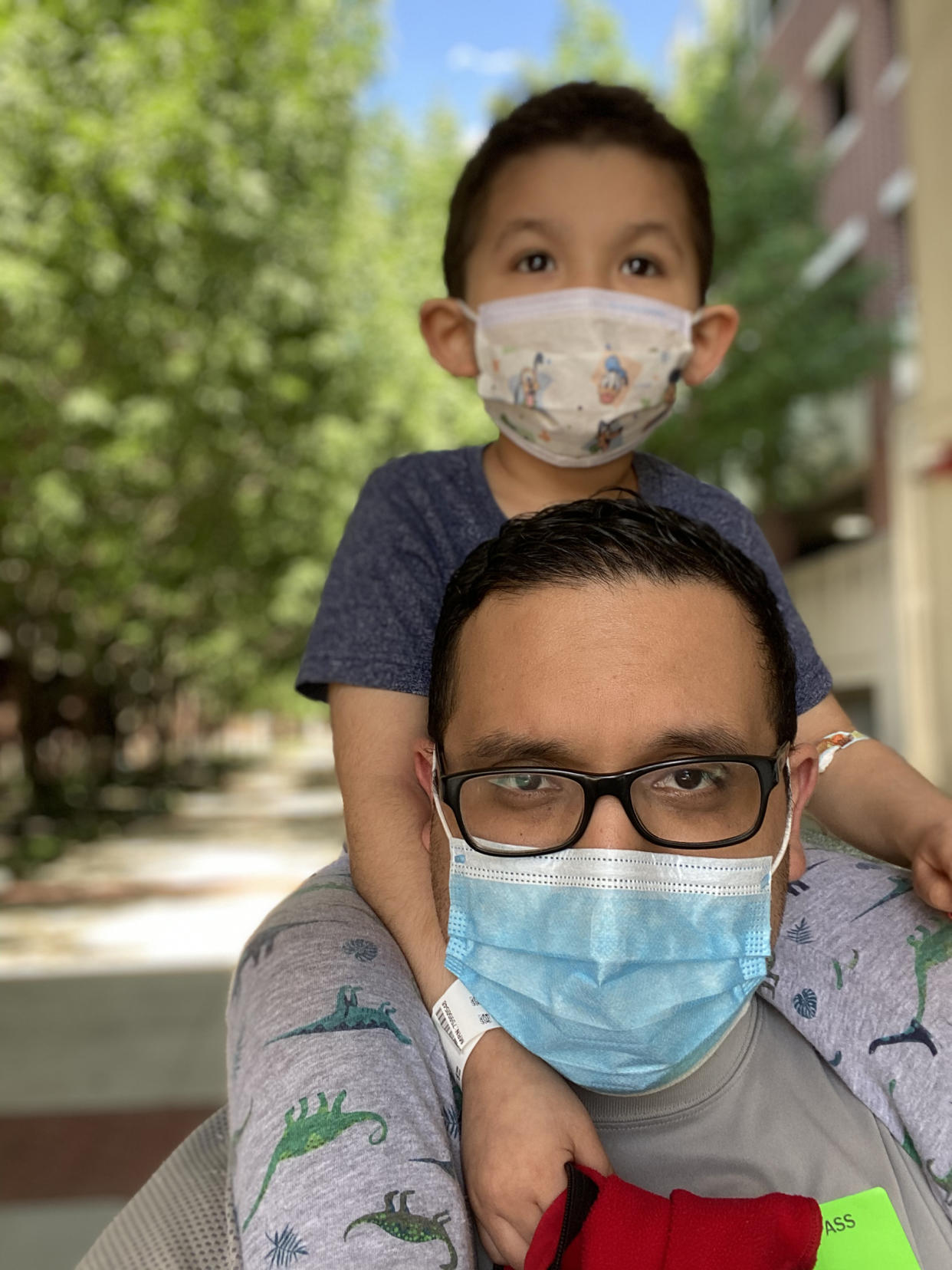
“I felt like there wasn’t an end to the problems,” he said. “With the pain that you’re going through on the inside, you just want it to end.” But Gálvez survived, and with the help of Indiana University Health chaplain Thomas McDorr, he slowly recovered and realized there was an important reason to live: Becoming a bone marrow donor to his son, Levi, 6, who has acute lymphoblastic leukemia (ALL), a rare cancer usually treated with chemotherapy, radiation therapy and stem cell transplant. Levi was diagnosed three and a half years ago.
“If I wouldn’t have been alive, this whole stem cell transplant wouldn’t be happening,” he said. “We wouldn’t have stood a chance if I would have been gone.”
A breaking point and a new start
Working in the emergency room of one of the largest hospitals in Indiana during the pandemic was stressful for Gálvez. As his divorce proceeded, he worried he would lose custody of his children. After the family went to the grocery store one day, his ex-wife handed him garbage bags full of his clothes.
“She’s like, ‘Don’t ever come back,’” he recalled. “I just constantly dealt with that in my head.”
After work, he attempted suicide. He ended up with a serious injury but was still able to drive to the emergency room. He fell out of the car and a police officer called for help.
“My injuries were pretty serious, so they took me to the operating room,” Galvez said. “I woke up about six hours later in the ICU.”
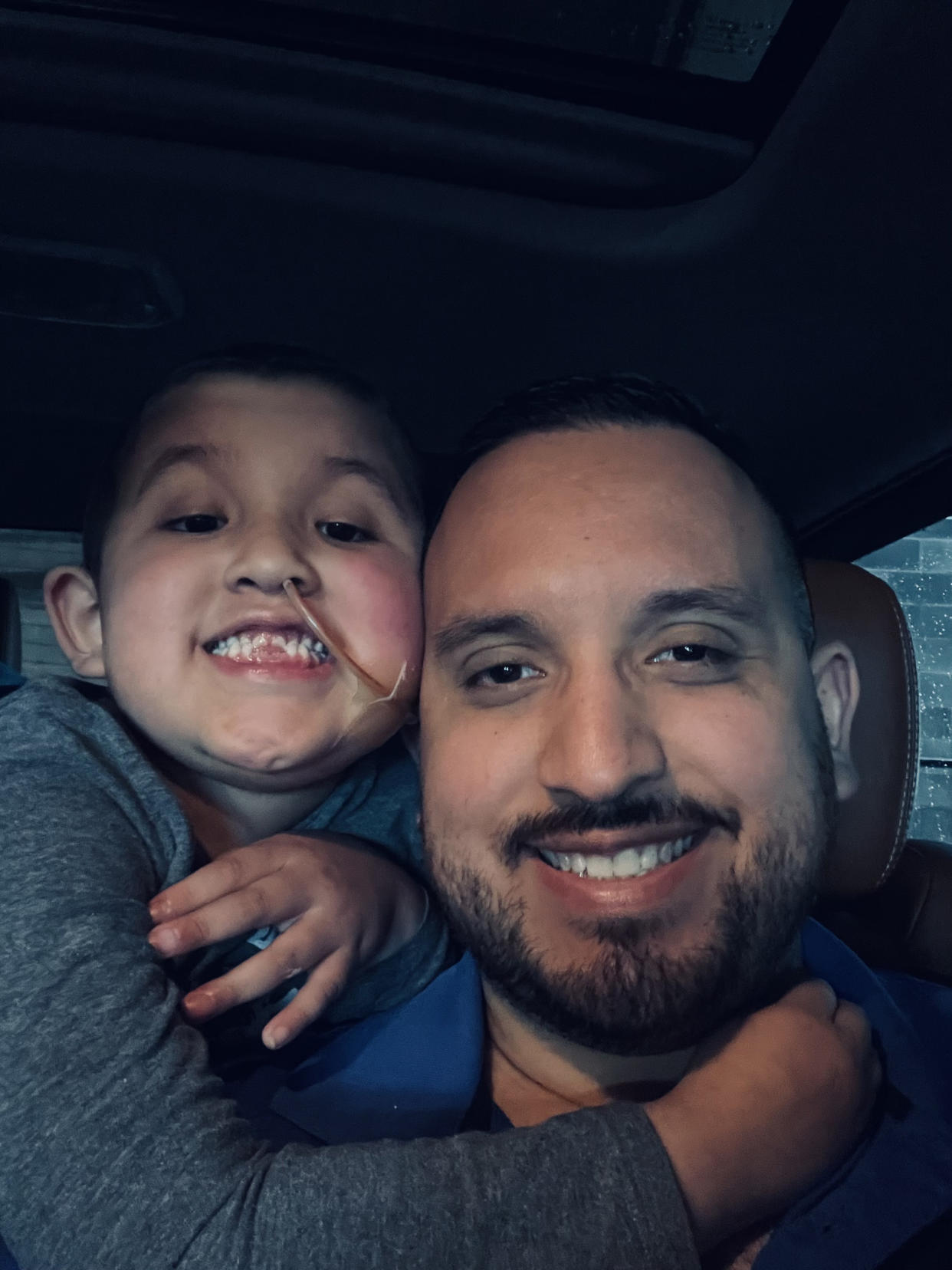
He felt “horrible pain,” and wondered how he survived. But his health was still in a precarious state. He asked for more pain medication, but they couldn’t give him more because his blood pressure was too low.
"It was just so hard to believe that I survived. I wasn’t expecting to," he said.
While he grappled with the physical pain, he encountered therapists and counselors who helped him navigate his emotional recovery.
“I felt a big relief, like a big weight off my shoulders because I knew I couldn’t deal with this alone, and I knew that I needed to talk to somebody,” he said. “I was always used to being the one that helps others and being helped myself (was tough).”
From the moment he came into the hospital, chaplain McDorr was there.
“He was by my side that day, and it was amazing,” he said. “He has always been a great encouragement and great spiritual and emotional support.”
McDorr listened without judgement shared his own experience with trauma, which helped Galvez feel less alone and isolated.
“I feel like I couldn’t relate to a lot of people I work with because not everybody has a child who is facing cancer,” Gálvez said. “They haven’t faced divorce. So I felt like I could talk to him.”
The role of a hospital chaplain
In 2011, McDorr and his now-wife went to a Sugarland concert. During the show, wind blew the stage onto the crowd, causing dozens of injures and even some deaths. As many people fled, McDorr rushed to the stage to help.
“I remember pulling people out form the wreckage,” he told TODAY. “That really changed me when I experienced that. I was already enrolled in Bible college. I was in my senior year, and it just put in me a desire to do something more than just being behind a pulpit.”
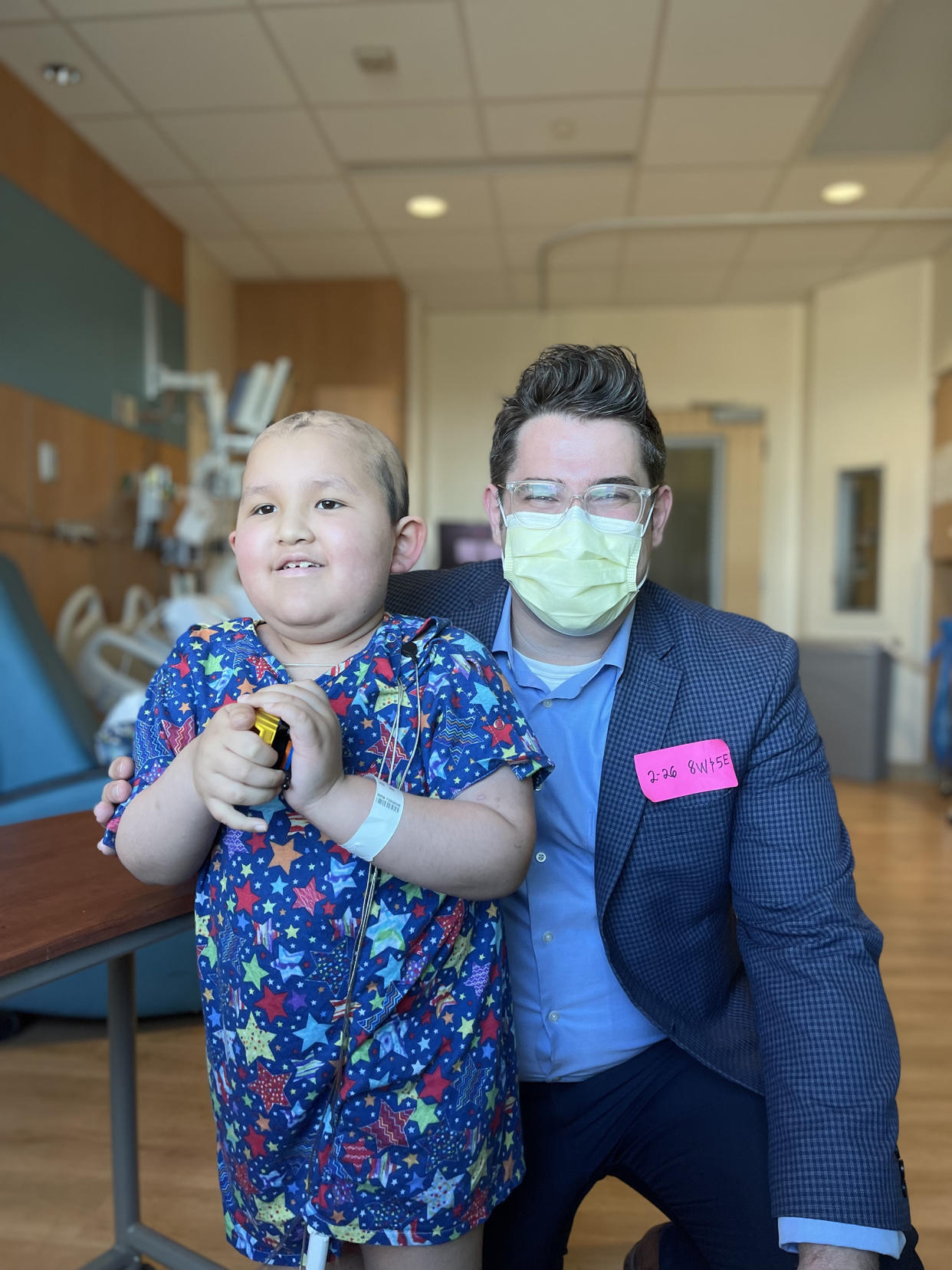
McDorr discovered hospital chaplaincy, and it felt like a perfect fit, allowing him to comfort people during some of the worst moments of their lives. When Galvez, whom he knew from working at the same hospital, came in, he felt stunned.
“Our worst fear is recognizing a patient when they come in,” he said. “No one ever wants to see a friend or colleague or a family member come in as a trauma, and so it was quite shocking to see Geovani.”
But McDorr overcame his shock to support Gálvez. McDorr knew Gálvez would experience fear, anger, grief and sadness.
“One of the things that hospital chaplains have the privilege of doing is being able to sit with those people in that initial moment of all those overwhelming feelings and to sit with them and normalize their experience,” he said. “(We) are able to address the emotional trauma.”
As Gálvez recovered physically, McDorr was there to talk about the weeks leading up to his suicide attempt, including his sadness and anxiety about his divorce, as well as his son’s leukemia recurrence.
“That’s part of that conversation — what’s going on in your life to the point where there seemed to be no other way,” McDorr said. “There are people who attempt suicide who feel like they have no worth or value. So there are conversations we can have that connect people back to their worth and meaning as humans.”
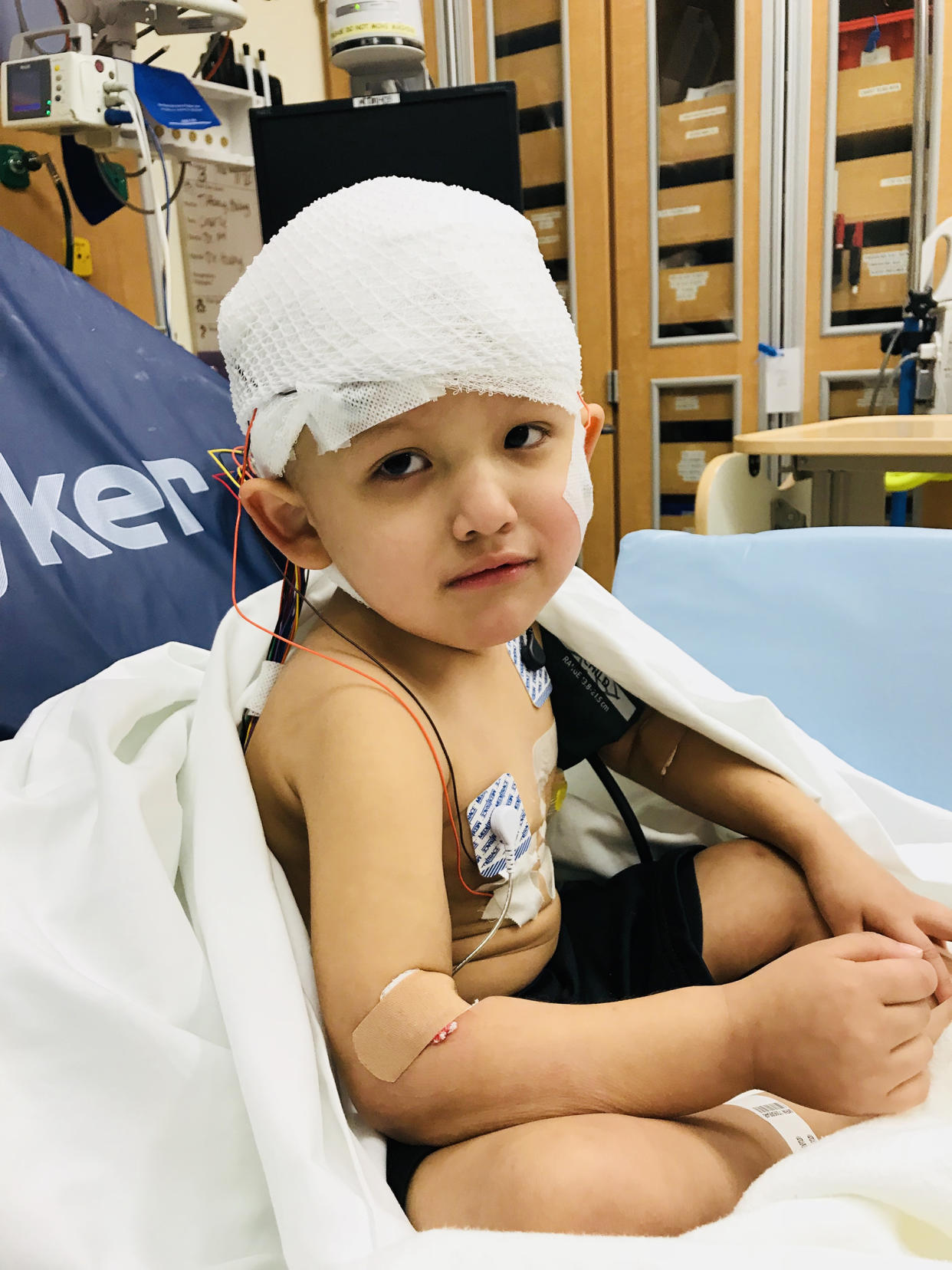
For Gálvez, remembering his importance in his son’s life helped.
Bone marrow donation and healing
When Levi was 2 and a half years old, he was diagnosed with ALL. While treatment was tough, he was cancer free for a few years. Then in March 2021, months before Gálvez's suicide attempt, Levi relapsed.
“It was a big hit for us because everything was going so well,” Gálvez said.
It seemed like treatment was working again, until he underwent a spinal tap and doctors found cancer cells. In December, they learned he needed a bone marrow transplant to help him.
Gálvez, his daughter and his ex-wife all were tested as possible candidates, and they learned that Gálvez was the best match. On March 1, Levi received the transplant.
“He’s actually doing pretty well,” Galvez said. “This should be the only transplant he needs. But there’s always a possibility of it not working.”
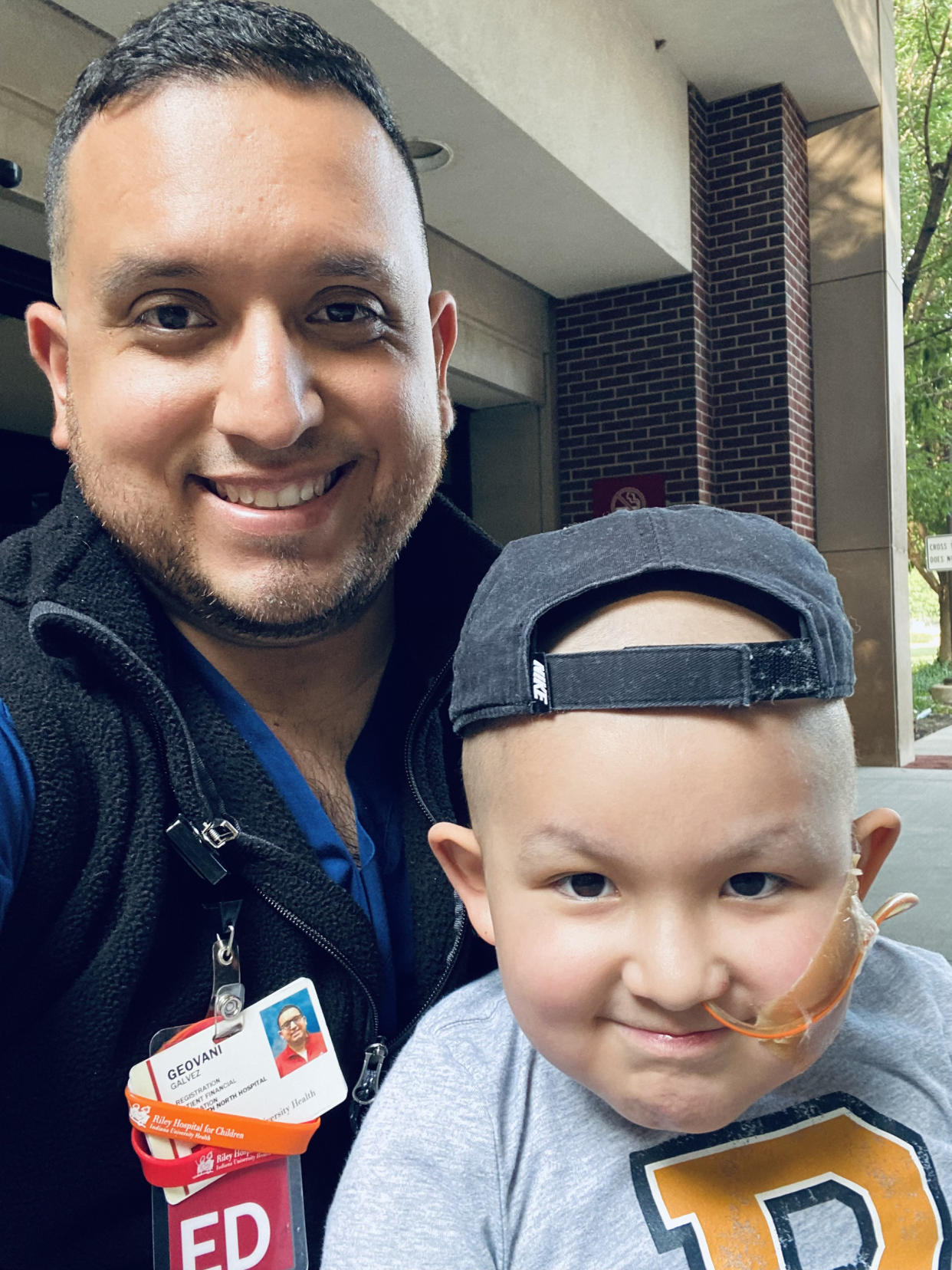
Still the experience helped Gálvez feel more connected with his family and also boosted his recovery.
“Going through a transplant with my son, it’s given me a peace inside me,” he said.
He wants to offer hope to others struggling with suicidal thoughts.
“I needed to open up and express everything I had in me because if not, I would have ended up dead,” he said. “I can make a difference by sharing my story.”
